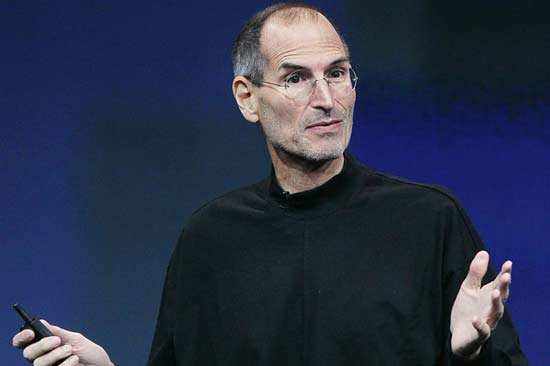So Jobs set out to create an "iTunes Store" and to persuade the five top record companies to allow digital versions of their songs to be sold there.
就這樣,喬布斯開始創立“iTunes商店”,并爭取五大唱片公司的數字音樂的銷售權。
"I've never spent so much of my time trying to convince people to do the right thing for themselves," he recalled.
他回憶道:“我從來不會花太多時間去說服人們做對自己有利的事。”
Because the companies were worried about the pricing model and unbundling of albums,
這些公司都擔心定價模式和專輯的拆分,
Jobs pitched that his new service would be only on the Macintosh, a mere 5% of the market.
喬布斯回應說這項新服務只會在麥金塔上使用,只占有5%的市場。
They could try the idea with little risk.
雖有小小的風險,但可以嘗試。

"We used our small market share to our advantage by arguing that if the store turned out to be destructive it wouldn't destroy the entire universe," he recalled.
他說:“我們把市場份額小作為優勢來說服音樂公司,即使iTunes商店失敗了,也不會造成太大損失。”
Jobs's proposal was to sell digital songs for 99 cents -- a simple and impulsive purchase.
喬布斯計劃把每首歌曲的價格定為99美分--這是個簡單又容易讓人心動的價格。
The record companies would get 70 cents of that.
唱片公司將從中抽取70美分。
Jobs insisted that this would be more appealing than the monthly subscription model preferred by the music companies.
喬布斯堅持認為,這種做法比音樂公司喜歡的月度訂閱的模式更有吸引力,
He believed that people had an emotional connection to the songs they loved.
因為他認為,人們和他們喜歡的歌曲之間有一種情感聯系。
They wanted to own "Sympathy for the Devil" and "Shelter from the Storm," not just rent them.
他們希望擁有《給惡魔的同情》和《暴風雨中的庇護》而不僅僅是租用。
As he told Jeff Goodell of Rolling Stone at the time,
他對《滾石》雜志的杰夫·古德爾說:
"I think you could make available the Second Coming in a subscription model and it might not be successful."
“我覺得也可以發起第二波訂閱服務模式,但是它恐怕不會成功。”












